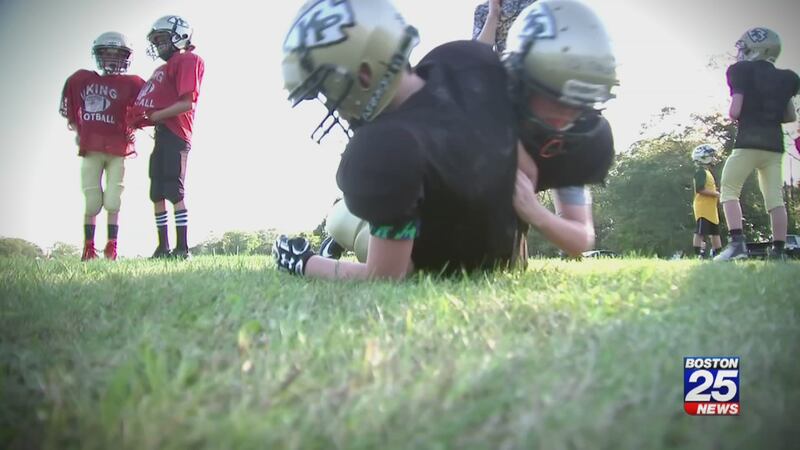A somber warning for parents: A new study suggests that concussions in high school athletes may be a risk factor for suicide.
Concussions are the most common form of traumatic brain injury. Symptoms include loss of consciousness, headache, dizziness, nausea, confusion and changes in mood.
Boston 25 News anchor Scott McDonnell spoke to Dale Mantey, the lead author of the study and a doctoral student at the University of Texas School of Public Health.
Mantey found that more than 13,000 teenagers who self-reported having a concussion in the last year reported feelings of depression, thoughts of suicide and suicide attempts. “We were, I guess, surprised and shocked by just how strong the effects really were, especially among boys,” he said.
Mantey said the key is to monitor your student-athlete after the concussion. “If there are any changes in mood, any changes in behavior, keep an eye on that and have a conversation with your child.”
David Schwartz, a neuropsychologist at Northside Hospital Duluth, near Atlanta, said parents and student-athletes shouldn’t overreact to the study.
"Concussions don't cause suicide, and that's really important for people to understand," Schwartz said. “Now what you have to be concerned about is if somebody has pre-existing mental health issues, then they would possibly be at a greater risk."
Schwartz said some kids who experience concussions may need more support with schoolwork or counseling to stay on track.
Boston 25 News talked to Medfield seventh grader Aidan Ryan and his mom, Elisa, about the study. Aidan is recovering from his second concussion this winter. He received the first after he was elbowed in the face during a basketball game. The second came during a volleyball match in gym class.
“The thought of concussion is always in the back of our minds,” Elisa Ryan said.
“It’s different going from basketball a lot during the week just to not being able to do it,” said Aidan.
The Ryan family says missing sports and school while he recovers is difficult, but they’re focused on making sure he’s completely healed.
Schwartz said that’s key: addressing the issue immediately to help avoid long-term problems.
The Ryans are looking into a concussion clinic to help with Aidan’s recovery, and eventually, hope that he will get back to doing what he loves.
“He received concussions in basketball and volleyball - they’re not the typical sports that you expect something like this to happen in. So we’ll definitely proceed... but with caution,” Elisa Ryan said.
© 2020 Cox Media Group







